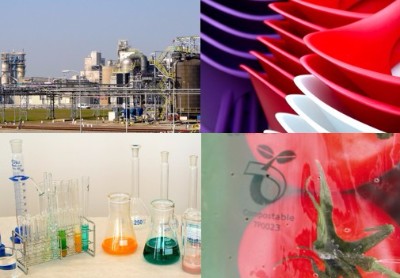To access our News Reviews, subscribe to our Information Package free of charge here.
Foreword

Nova-Institute has released a market study covering the global bio-based polymer market. Overall, PLA capacity has increased by almost 50%, with polyamide and epoxy resin
capacities steadily increasing. Capacity for 100% bio-based PE has been expanded and PE
and PP made from bio-based naphtha has increased. The study forecasts annual growth of
17% for bio-based polymers between 2023 and 2028. Apparently, several global brands are
already expanding their feedstock portfolio to include sources of renewable carbon, CO2, and
biomass thereby increasing the demand for bio-based and biodegradable polymers.
However, there is a lack of political support in Europe, where policy only supports biofuels
and bioenergy production. By contrast, the supportive legislation in place in Asia and
particularly in the US is driving demand.
As of 2023, Asia had the largest installed bio-based production capacity at 55%, with the largest capacities for PLA and PA. North America has 19%, with large installed capacities for PLA and PTT, and South America has 13%, mainly based on PE. In contrast to 2022, European shares in worldwide bio-based polymer capacities has decreased to 13%. This is mainly based on updated data for European PE and PP production, where only 10% of the total volume is known to be bio-based and 90% are bio-attributed based on ‘mass balance and free attribution’ (MBFA). The European share is mainly based on installed capacities for starch-containing polycaprolactone (SCPC) and PA. With an expected CAGR of 35% between 2023 and 2028, Asia displays by far the highest growth of bio-based polymer capacities compared to other regions in the world. This increase is mainly due to extended production capacities for PA, PHA and PLA.
Other News this Month Includes:
Policy
- New research says plastics not a priority for politicians but are for the
public
- How innovative sustainability commitments are transforming Asia’s bioeconomy
Markets
- Current market study forecasts annual growth of 17% for bio-based polymers between 2023 and 2028. Demand from Asia and the USA in particular is driving growth, Europe is lagging behind.
- Formerra in Distribution Partnership with AFC Ecoplastics
- Angel Yeast collaborating on pursuit bio-based material solutions
Research & Development
- Resource-efficient or bio-based materials and manufacturing, FS 2
- £13.5 million for 48 engineering biology R&D projects
- More...
Polymers
- Happy Meal: First Playmobil toy based on sugarcane
- Bosk Bioproducts to unveil bioplastic jar made with 'Regen'
Chemicals
- Pili has successfully industrialized a biobased aniline derivative to decarbonize the chemical industry
- Biobased chemical start-up MicroByre is out of business
Consumer Products
- Industrial compostable biopolymer for greenhouse twines
- The award-winning Sulapac Nordic collection now available for brands of all sizes
- Hyosung expands bio-based spandex offerings with integrated facility
Events
Price Information